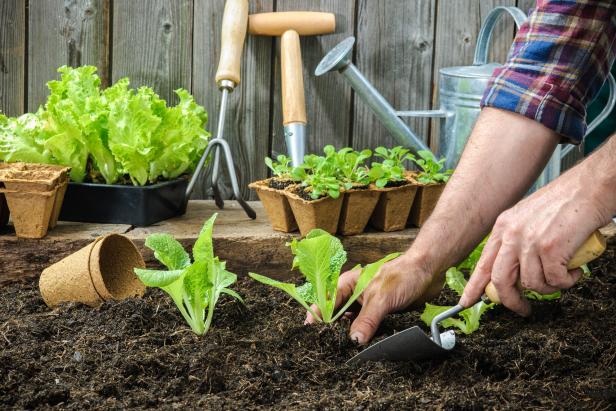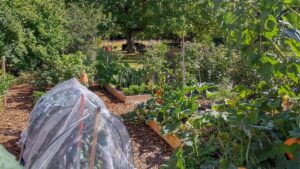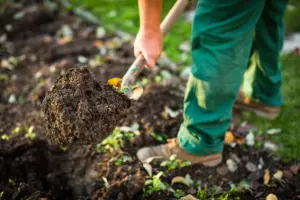Permaculture is an environmentally friendly approach that focuses on the health and well-being of people, communities and the environment. This approach to gardening involves more than just growing plants; it is also about creating a well-functioning ecosystem that uses resources wisely and supports different types of life. The benefits of permaculture gardening extend beyond the garden itself. It does this by using methods that cause little damage and support the natural life cycle. This article describes the many benefits of gardening in a way that does not harm the environment.
1. Environmental Benefits:
Care Resources
The goal of permaculture is to use natural resources such as water, soil and energy in the best possible way. Rainwater harvesting, gardening, and using plants that can survive dry conditions can help reduce additional demand on urban water sources. Composting biowaste not only reduces the amount of waste ending up in landfills, but also improves the soil, eliminating the need for many chemical fertilisers.
Get Rid of the Pollution
Permaculture gardening does not use synthetic fertilisers and pesticides. These are important sources of water and soil pollution. They use organic pest control, companion planting and organic compost, among other organic methods, to repel pests and provide nutrients to the plants. This prevents harmful materials from entering nearby waterways and ensures your garden is a safe place for beneficial insects and animals.
Taking Care of Biodiversity
In permaculture, many different types of plants, including native plants, are used to benefit a variety of wildlife. This variety provides habitat and food for good insects and birds, thus keeping the ecosystem in order. They help repel pests and spread pollen naturally. Add habitat features such as bird houses, insect hotels and water sources to your garden to make it more diverse.
2. Good for Your Health and Nutrition:
Provide Healthy, Fresh Food
Growing your own herbs, vegetables and fruits in a permaculture garden provides you with a steady supply of fresh food that is free of chemical fertilisers and pesticides. This not only makes the food healthier, but also reduces the ecological footprint of the food from farm to table.
Health of Body and Mind
Gardening is a great way to stay fit, become more resilient and build strength. It is also good for your mental health because it reduces stress, helps you relax and gives you a feeling of achievement. Being in contact with nature and the changing seasons can make you more aware and feel better.
3. Benefits for the Economy:
Cheaper Food Costs
When you consider the cost of organic food, growing your own food can really help you save on your grocery bill. By saving seeds and growing plants from cuttings, you can farm in a way that helps the environment and save money on purchasing seeds and plants each season.
Add Value to Real Estate
A well-maintained, sustainable location can make a home look better, increasing its market value. People who care about the environment may also be interested in landscapes that support wildlife and conserve resources.
4. Benefits to the Community and Society:
Educational Opportunities
Permaculture offers countless learning opportunities for a variety of people. It teaches children where food comes from, why diversity is important and the basics of ecology. It offers adults the opportunity to learn new things, such as composting and permaculture planning.
Closer to the Community
Shared permaculture projects and community gardens can bring people together and help them feel part of a group that cares about the environment. These programmes allow people to meet new people, collaborate, and share resources and information.
Summary:
Being environmentally friendly, improving health and well-being, and helping the community are just a few of the many reasons why permaculture is a good choice. Through sustainable practices, gardeners can transform their green spaces into thriving ecosystems that support life, conserve resources and provide safe havens for people and animals. No matter how big or small your garden is, using sustainable gardening methods can make the world a healthier place and your life more enjoyable.
FAQs:
1. What is sustainable gardening?
Permaculture is an environmentally friendly approach to gardening that aims to reduce the ecological footprint through efficient use of natural resources, minimise waste and support local ecosystems. These are practices that promote soil health, conserve water, reduce pollution and increase biodiversity.
2. How does permaculture gardening save water?
Permaculture conserves water through methods such as rainwater harvesting, drip irrigation, mulching and selecting drought-resistant plant varieties. These techniques help maximise water efficiency and ensure that plants receive enough water without wasting it.
3. Will permaculture gardening really improve my health?
Yes, permaculture gardening can significantly improve physical and mental health. Physically, it provides a form of exercise that improves strength, flexibility and endurance. Mentally, it reduces stress, promotes relaxation and improves mood by connecting with nature and nourishing the healing properties of plants.
4. What are the economic benefits of adopting permaculture practices?
Economic benefits include lower grocery bills as a result of growing your own fruits, vegetables and herbs, as well as potential savings on water and garden inputs through the use of compost and natural pest control methods. Additionally, permaculture gardens can increase property values by increasing their aesthetic appeal and environmental sustainability.
5. How does permaculture support community and social well-being?
Permaculture can strengthen community ties by encouraging the sharing of knowledge, resources and production. Community gardens and community gardening programmes provide space for social interaction, collective learning and the promotion of environmental stewardship, fostering a sense of community and mutual support.



